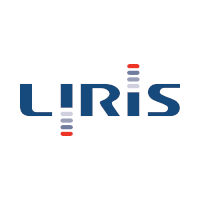Knowledge about the recent past affects human gaze patterns
Résumé
Humans move their eyes to explore their surroundings, constantly changing the visual input they receive. Usually, the current visual input follows naturally from immediately preceding input. This temporal continuity of information enables the accumulation of knowledge about the environment. Here, we investigated how recently-gained knowledge influences gaze patterns and their underlying information-gathering strategy. Using eye tracking, we examined if people looked differently at natural scenes, depending on the presence or absence of relevant knowledge about the events immediately preceding the scenes. 48 Participants viewed 80 sequences of movie frames that comprised several ‘context’ frames showing an unfolding series of events, followed by a ‘critical’ frame. In an Expected condition, critical frames depicted natural continuations of events presented in the context frames. In an Unexpected condition, the context frames were unrelated to the critical frame. Importantly, critical frames were identical in both experimental conditions; only the context frames differed. We measured characteristics of gaze-patterns registered on the critical frames. Linear mixed-effects models analysis revealed that in the Unexpected condition, in comparison to the Expected, two measures increased (number of fixations and saccade length), two decreased (fixation duration and number of blinks; all p-values < 0.001), and one remained unaffected (first-saccade latency). These results indicate that without relevant knowledge about past events, oculomotor behavior is more exploratory. Next, we tested which information best differentiates the conditions. We fitted models which separate ‘spatial’ and ‘temporal’ information (hidden Markov models) to scan-paths from critical frames and used a machine-learning technique (linear discriminant analysis) to classify these models into two conditions. The classifier achieved 69% accuracy (chance-level: 50%). Crucially, discarding spatial, but not temporal, model-components substantially decreased the classifier’s performance, demonstrating that the conditions differ predominantly regarding sampled image-regions. In summary, we demonstrate that eye movements are influenced by information about the recent past.
